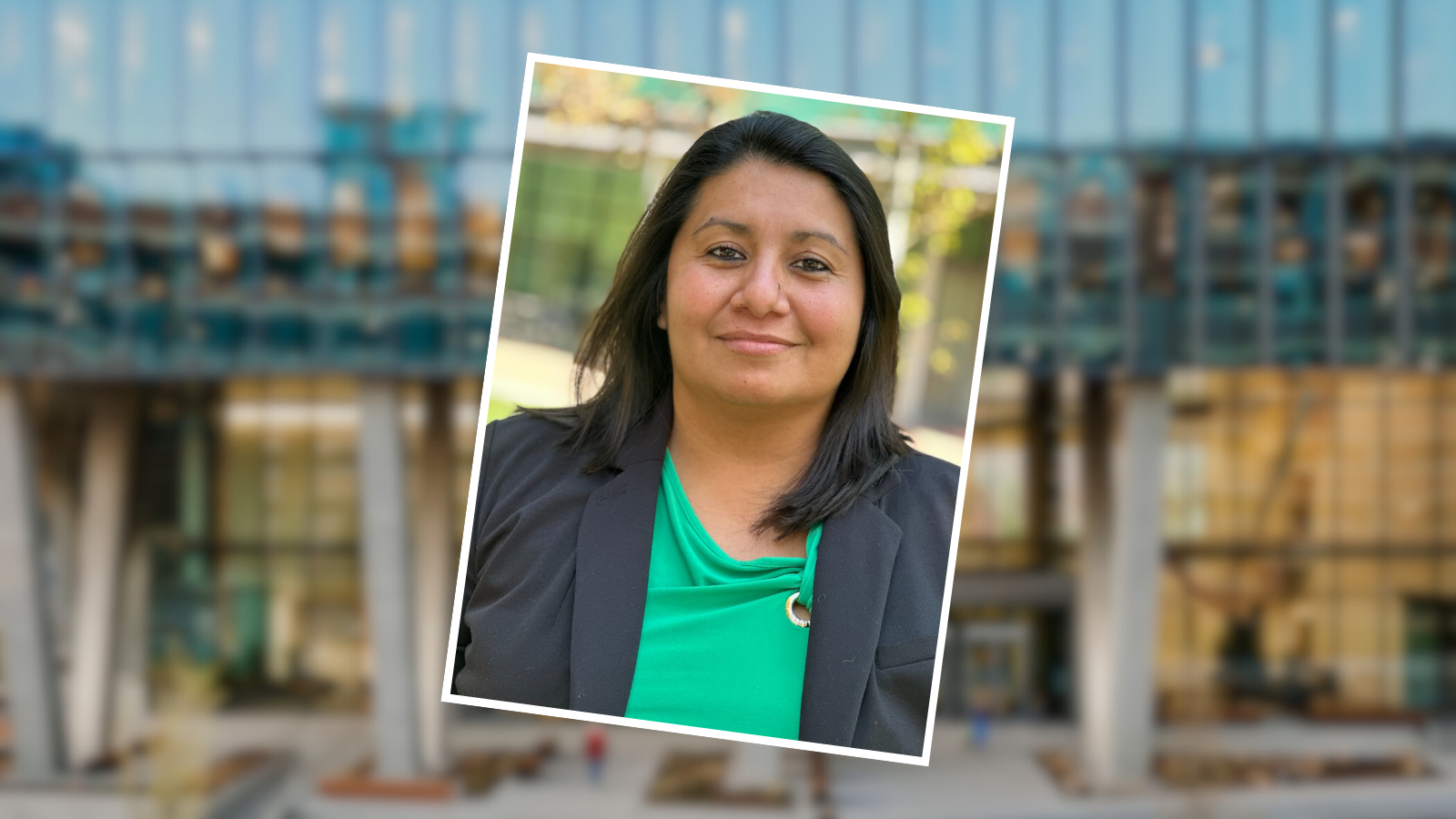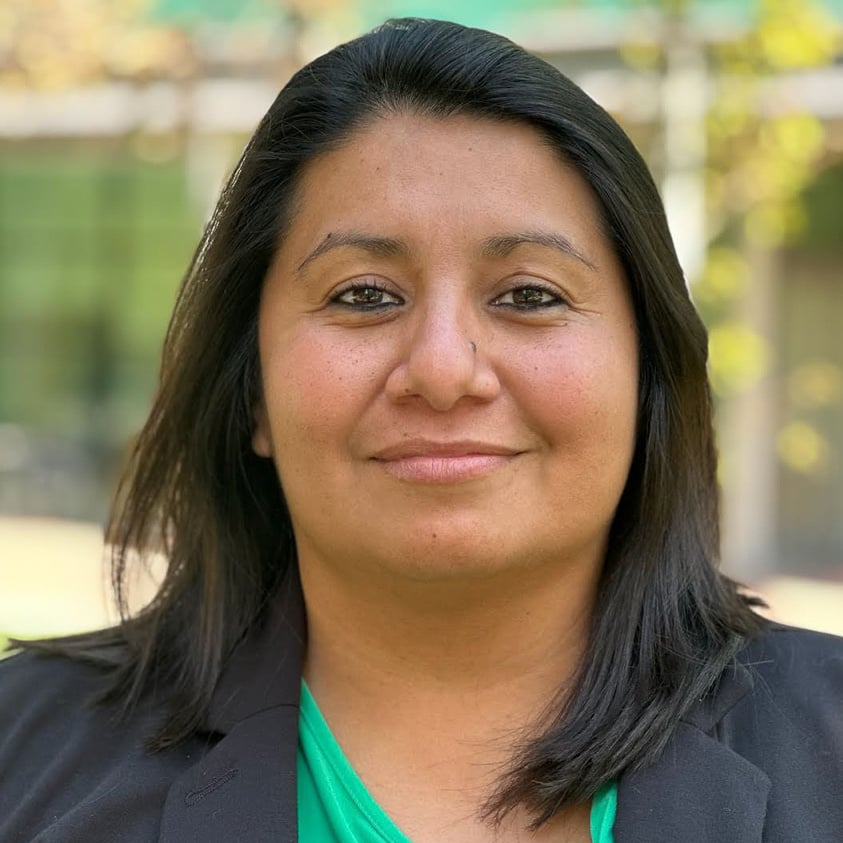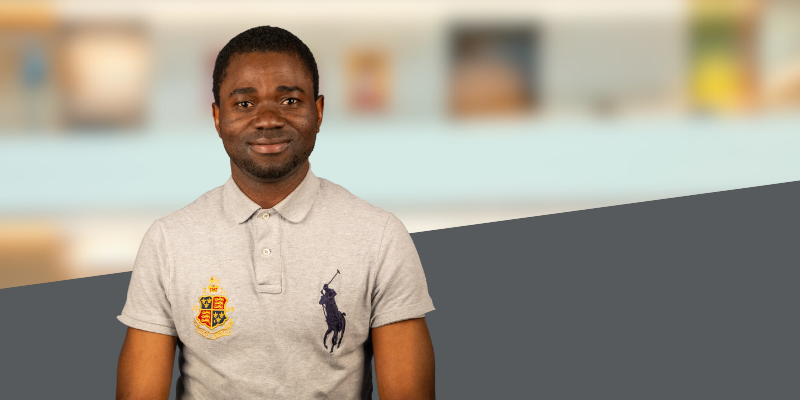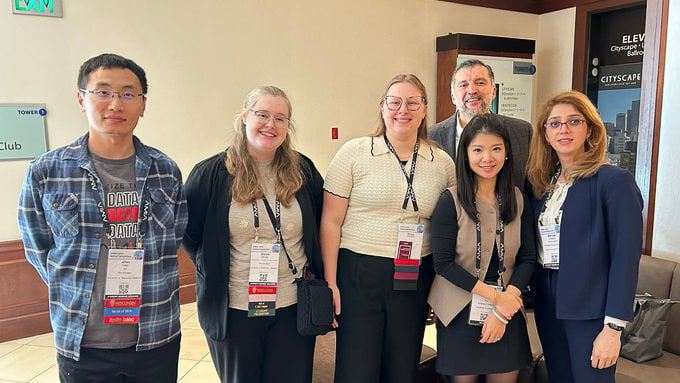The National Institute of Justice Graduate Fellowship will fund research at the University of Colorado Anschutz Medical Campus (CU Anschutz) to increase the number of casework samples eligible for investigative genetic genealogy (IGG).
Betzaida Maldonado, a predoctoral trainee in the Gignoux Lab at the University of Colorado School of Medicine, aims to tackle the challenges of traditional forensic testing, particularly regarding samples that are mixtures from multiple individuals—an issue commonly encountered at crime scenes. She shared, “Ultimately, my goal is to provide a transparent and user-friendly bioinformatics pipeline that detects SNP mixture data and deconvolutes two-person mixtures.”
This work takes the Gignoux Lab in a new direction. Christopher Gignoux, PhD, professor of biomedical informatics, added, “While this application is a new direction for our group, many of the methods used in forensic DNA analysis have their roots in statistical and population genetics, so we are excited to take this new step.”
This research has the potential to significantly impact the criminal justice system by expanding the number of samples eligible for IGG. Such advancements can provide closure for victims, facilitate timely justice, and enhance public safety by generating investigative leads to identify violent offenders.
Gignoux added, "Credit to Betzaida on this award, she looked into the scope, drafted the application, we worked on the methods together, but otherwise this is her vision. She is one of only two awardees this year to be awarded a NIJ fellowship to work on genetics applications.”
A passion for forensics
Maldonado has been passionate about forensic science since high school. With support from a scholarship funded by the Bill and Melinda Gates Foundation, she attended West Virginia University (WVU) to pursue forensic science. By the end of her master's program at Marshall University, she had interned with the Denver Police Department and the D.C. Department of Forensic Sciences.

Maldonado in the lab during her MS program at Marshall University.
Next, Maldonado joined the Georgia Bureau of Investigation, where she spent five years as a forensic DNA analyst and has served as an expert witness in over 25 cases in Georgia. At the crime lab, she enjoyed working on method improvement, stating, “I helped with the implementation of new instrumentation and the improvement of policies regarding mixture interpretation.” Through this experience, she recognized the critical role of population genetics and statistics in forensic applications. She reflected, “All my education and training up to that point was through a forensic lens, and I wondered if a different perspective would enhance my understanding of probabilistic models to help advance the field.”
Maldonado applied to the Human Medical Genetics and Genomics program at CU Anschutz. She explained, “I purposely enrolled in a non-forensics PhD program, as I hoped it would provide me with a completely new perspective on human genetics and statistics, allowing me to develop innovative ideas to address the challenges faced in crime labs.”
Understanding the challenges of forensic testing and investigative genetic genealogy
While working for the State of Georgia, Maldonado learned about the technologies and methods used in traditional forensic testing at crime labs, which differ from those in IGG. She explained, “Traditional forensic testing involves the analysis of Short Tandem Repeats (STRs), which are short fragments of repeated DNA sequences usually 2-6 base pairs long,” she continued, "Crime labs examine DNA at 24 locations (STR loci) to create an STR profile that can then be searched in the Combined DNA Index System (CODIS), a database managed by the Federal Bureau of Investigation (FBI). Maldonado noted, “When an STR profile is searched in CODIS without a match, alternative approaches are employed to provide investigative leads in the case.” One common method is to send the sample to a private company to obtain a Single Nucleotide Polymorphism (SNP) profile, which can be uploaded to genetic genealogy databases like GEDmatch. “Once uploaded, a list of genetic relatives can be generated based on the shared amount of DNA,” she added.
The success of these genealogy searches, regardless of the database used, depends significantly on the quality of the forensic sample. Maldonado emphasized, “One important quality or eligibility measure is that the sample must be from a single source, meaning that the evidence sample cannot have the DNA of more than one person.” However, this is often unrealistic, as most forensic samples are mixtures from multiple individuals. This challenge arises from the nature of items collected at crime scenes and the increased sensitivity of DNA technologies that can detect even trace amounts of DNA.
Current guidelines do not exist to separate or "deconvolute" SNP mixture data from multiple individuals, which restricts the ability to search these samples in genealogy databases. Maldonado added, "As a result, this limitation delays justice, hinders closure for victims, and compromises public safety by leaving cases unsolved."
Advancing forensic science
The NIJ Fellowship allows Maldonado to merge her decade of experience in forensic science with the skills acquired during her doctoral training.
Her NIJ-funded project aims to enhance access to justice by creating publicly available resources for forensic scientists to interpret SNP mixture data. Maldonado explained that there are currently no guidelines for analyzing SNP mixtures. Therefore, the first step will involve simulating data from publicly available sources like the 1000 Genomes Project to evaluate the characteristics of SNP mixtures and establish a detection limit. This will help determine the number of contributors in an evidence sample. She added, “We will then develop a likelihood probabilistic model that, when maximized, can infer the alleles of each contributor in two-person mixtures.”
The goal is to create a transparent and user-friendly bioinformatics framework to detect SNP mixture data and deconvolute two-person mixtures. Maldonado pointed out, “ I will use my casework experience to follow a stepwise process that closely resembles the workflow currently used by crime labs for STR mixture interpretation.” To assess the effectiveness of their framework, the team will analyze known mixtures, interpret them using their method, and evaluate how accurately the probabilistic model separates the two individuals involved.
Gignoux shared, "I’m very proud of Betzaida. On top of her numerous leadership and service efforts, she has taken it upon herself to apply her new skills in population genetics to a fundamental problem in forensics.”
Maldonado emphasized, “By advancing our understanding of SNP mixture data, we hope to empower crime labs to implement SNP technology and improve their understanding of genetic genealogy approaches.”




